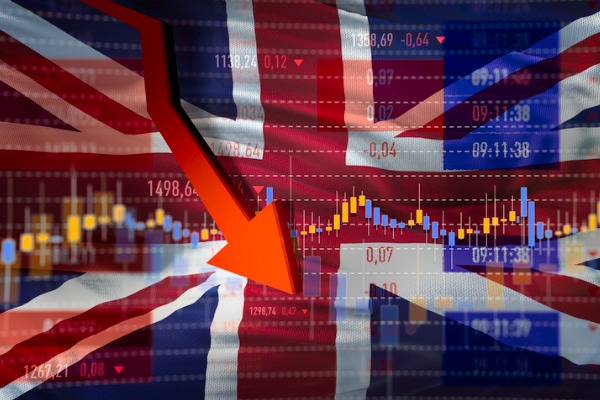Boost for income seekers as weak pound benefits FTSE 100 dividends
26th October 2022 11:05
by Sam Benstead from interactive investor
Link Group estimates that currency movements will generate substantial earnings for income investors in 2022.

The surge in the US dollar and weak pound this year is boosting the profits and dividends of British companies that operate overseas.
The pound was worth around $1.35 in January 2022, but trades at just $1.13 today, a 16% decline. This means that companies that earn money in dollars get a boost when converting these profits back to sterling.
Commodities are generally traded in dollars, so oil and mining companies have seen a large increase to their earnings when converted back to pounds.
The FTSE 100 index of the UK’s largest firms generates 82% of its profits overseas. While not all of these will be prices in dollars, the pound has been weak against other major currencies this year, such as the euro. The FTSE 250 earns 57% of its profits overseas, according to indexer FTSE Russell.
Link Group, a financial data firm, calculates that for 2022 currency movements will add £5.7 billion to UK dividends, with the biggest increase set to come in the final three months of the year.
It has upgraded its 2022 expectations for UK plc dividends to a headline £97.4 billion, up 5.5% year-on-year. Adjusting for mining firm BHP Group Ltd (ASX:BHP)’s move to the Australian stock market it said dividends would have increased 11%.
- Is the UK still the top dog for income investors?
- Benstead on Bonds: historic gilt collapse is a classic ‘blood on the streets’ moment
Underlying dividends, which exclude one-off “special” dividends will rise £87.2 billion in 2022, up 15.3% (or 13.4% adjusted for BHP and exchange-rate gains), according to Link Group.
Nevertheless, third-quarter payouts were a touch weaker than Link Group expected, mainly due to lower-than-expected payments from consumer staples and mining firms.
A one-fifth (-21.3%) decline in mining payouts knocked seven percentage points off the third-quarter headline growth rate, although Link Group says the sector will still be the biggest payer in 2022 and perhaps even in 2023.
Oil and gas payouts were up by a fifth in the third quarter (up 18.9%) year-on-year. The biggest contribution to growth came from banks and financials. Collectively their payouts jumped 49.3% (up £2.7 billion), with NatWest Group (LSE:NWG) making the largest positive impact.
- What an inflation shock really looks like
- Ask ii: can I get a yield of 4% or more from bonds like I can from equities?
Ian Stokes, managing director for corporate markets UK & Europe at Link Group, said: “The economic backdrop in the UK and for the wider world has deteriorated markedly in the last three months. The sharp increase in bond yields has huge implications for asset prices, asset allocation, personal finances, and government deficits. For the first time in more than a decade, the UK 10-year gilt yield has risen above the yield on UK equities, even if only briefly. Suddenly income investors have more choice.
“Nevertheless, the high yield of the UK stock market signifies that more of the value of UK equities is grounded in the stream of dividends it provides. Although this also reflects a lower growth profile for UK companies than, say US companies, it also makes capital values less sensitive to rising longer-term bond yields.
“Moreover, we do expect UK companies to continue to deliver dividend growth over the medium and long term, which provides a level of insulation against the rising cost of living.”
Link Group forecasts a slight drop in headline dividends to £96 billion and a slight increase in the underlying total to £89 billion in 2023.
“This implies no change in our expectation that UK payouts will only regain their pre-pandemic highs some time in 2025,” Stokes said.
These articles are provided for information purposes only. Occasionally, an opinion about whether to buy or sell a specific investment may be provided by third parties. The content is not intended to be a personal recommendation to buy or sell any financial instrument or product, or to adopt any investment strategy as it is not provided based on an assessment of your investing knowledge and experience, your financial situation or your investment objectives. The value of your investments, and the income derived from them, may go down as well as up. You may not get back all the money that you invest. The investments referred to in this article may not be suitable for all investors, and if in doubt, an investor should seek advice from a qualified investment adviser.
Full performance can be found on the company or index summary page on the interactive investor website. Simply click on the company's or index name highlighted in the article.